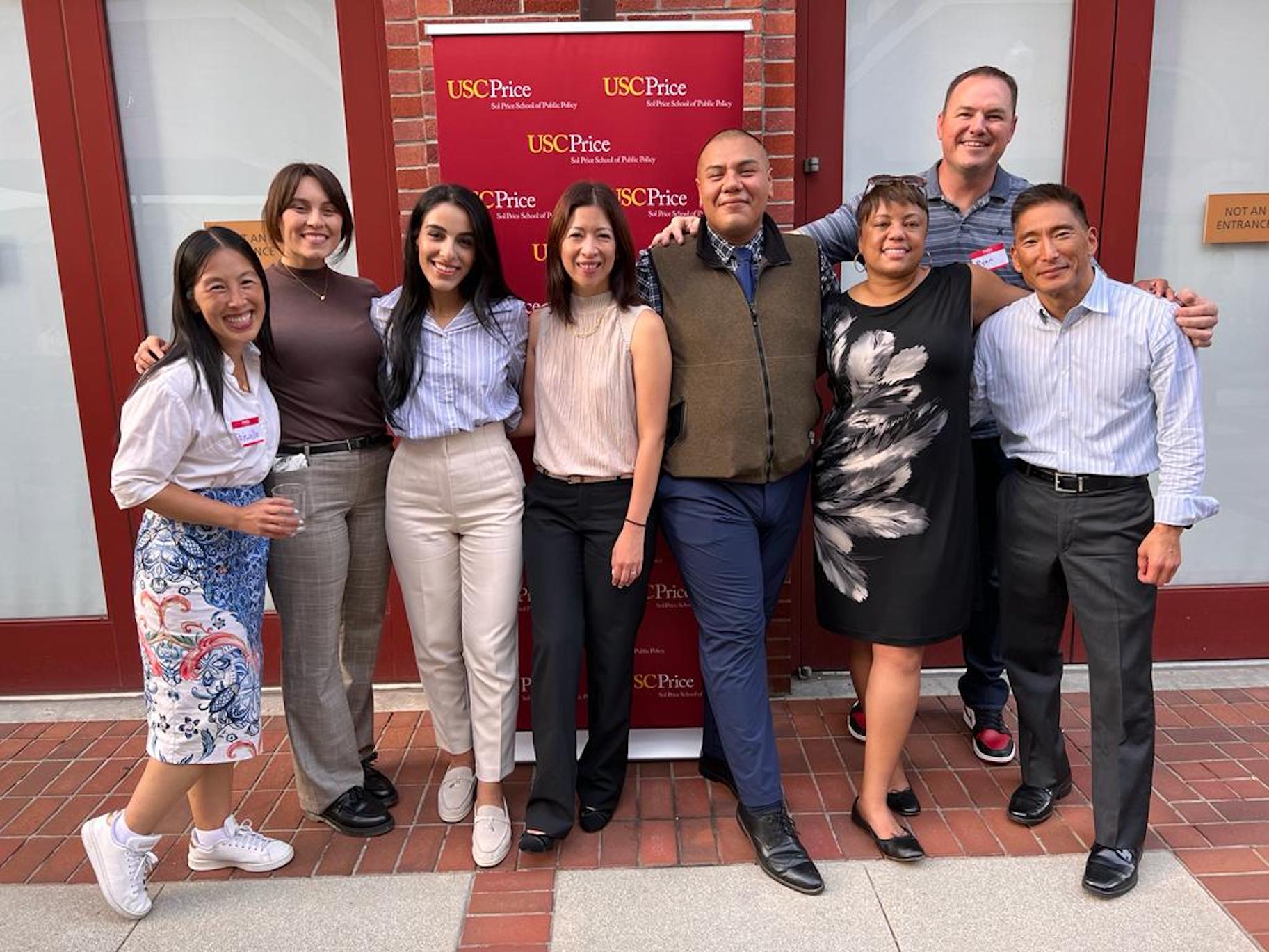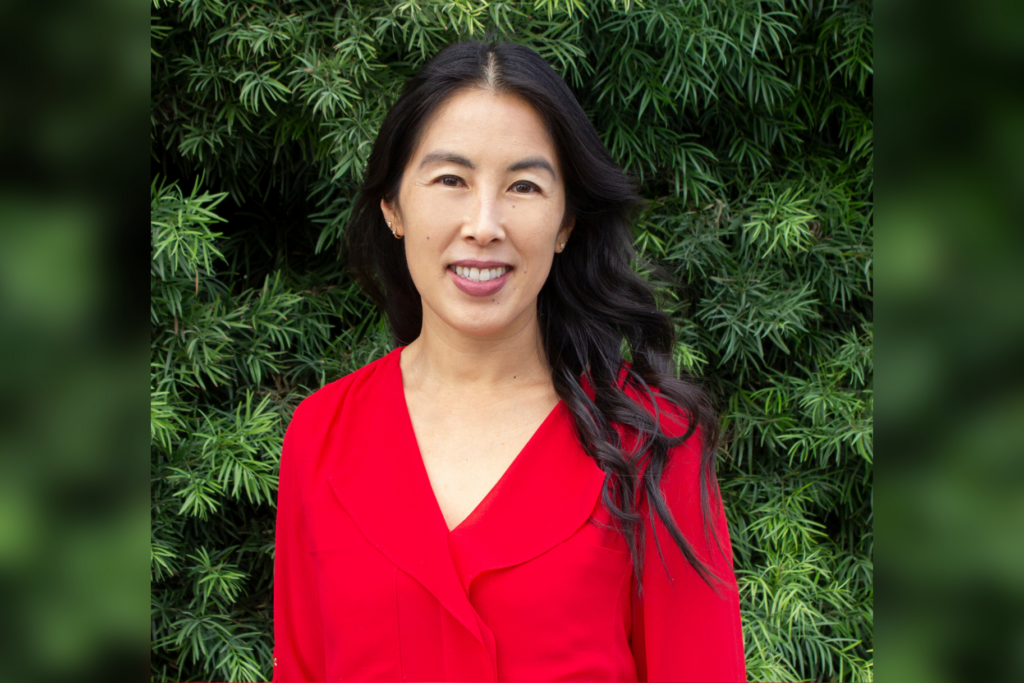Priscilla Hung has been a vital force for positive social change for nearly 25 years — and counting. Her leadership in the nonprofit sector includes co-directing the Move to End Violence (MEV), a 10-year initiative committed to fostering a safer world for girls and women.
Supporting almost 100 organizations, MEV was established by the NoVo Foundation, founded by noted philanthropists Peter and Jennifer Buffett.
“They saw that one of the things holding the world back was women and girls not being able to reach their full potential,” Hung said of the founders. “And a major reason for that is the prevalence of gender-based violence.”
MEV, which is now sunsetting, offered resources, coaching and other support for cohorts of leaders.
“We provided a space for people to move beyond their organizations and silos to figure out bigger and more creative solutions to the challenge of violence against women and girls — both cis and trans as well as those who are gender nonconforming — instead of just treating the symptoms,” Hung said.
By boosting groups that share MEV’s ideals, the work of Hung and her colleagues will continue having an impact long after the time-limited initiative ends. Calling MEV “a really big experiment,” Hung added that “it’s been such a privilege because I got to work with 100 amazing leaders who are inspiring and have important stories to share.” She is now helping oversee the evaluation of the project’s activities to inform future work throughout the nonprofit sector.
Amid this crucial work, she is also completing a Master of Public Administration (MPA) degree at USC. Offered online through the USC Price School of Public Policy, the program combines coursework with experiential learning, and the blended curriculum expands the skills necessary for leading public and private organizations that serve social interests.
Because of her demanding job duties, which include a lot of travel, it was important for Hung to pursue a program online that offered flexibility and convenience. USC Price’s high rankings also attracted her, and she was confident that the MPA online was just as rigorous as its on-campus version.
“I didn’t want a program that was a shadow of what it was supposed to be,” she said.
Although Hung is used to working remotely, as her duties include liaising with a virtual team of consultants nationwide, she admitted to being a bit nervous as classes began.
“I came to the MPA online program as a student in my 40s, and I thought everyone else would be 25,” she said. “But we actually span some three to four decades in age.”
The diverse cohort also includes a range of career experiences, including finance, government, law enforcement, the military and emergency management.
“Having worked in the nonprofit sector for so long, I’m in a little bit of a bubble,” Hung explained. “So being able to dialogue with students from so many backgrounds and with so many ideas really opens up different ways of solving many of the challenges society faces, including poverty, racism and violence.”
She also appreciated the supportive faculty and being introduced to new concepts, including a statistics course, which helped her to measure the impact of her work in both a qualitative and quantitative way.
In particular, Hung highlighted the leadership and organizational management course taught by Kelly Rawlings, PhD, an associate professor at USC Price, as having a lot of relevance: “I really enjoyed that class because it provided a different set of theories for the work I do. But then I’ve really enjoyed the whole program — the two years have really flown by,” she recalled.

In a way, Hung has come full circle by becoming a student again, because she began championing social justice while an undergraduate. She started out volunteering at her college’s women’s resource center and soon found herself running the campus sexual harassment and peer education program. She also became involved with the anti-sexual violence organization Take Back the Night.
“Sexual assault is a real problem on college campuses — especially for a lot of students who have never been away from home or who have never been around so much alcohol and partying,” Hung noted.
Through volunteer work, she developed a talent for organizing, while her classwork showed an aptitude for writing. After graduation, Hung put both skills to work as development director for a nonprofit that used data to empower marginalized communities.
As her career grew, so did her skills — not just in philanthropy and communications, but also in coaching, capacity building, organizational development, program management and other key areas.
Even after years of success in all aspects of nonprofits — including board leadership — Hung knew there were more approaches to learn and new ways to professionally excel. She originally considered pursuing a master’s degree after a college reached out to her about teaching graduate courses in nonprofit management and fundraising.
“They told me I was perfect and that they were so excited,” she said. “But then they saw my resume and said I couldn’t teach there because I didn’t have a graduate degree. Of course, that was fine and I understood, but it planted the seed of wanting to come back to school.”
Meanwhile, her work with MEV, which operates out of a public affairs consulting firm, made her aware of the intersectoral advantages of partnerships among the private sector, nonprofits, philanthropists and government in a way she had not previously experienced.
“I realized that a little bit more experience and understanding would really support me if I continued pursuing intersectoral work,” Hung said.
USC’s MPA program has enabled her to explore these connective possibilities more fully, and it has pushed her and her cohort members to think about how more unexpected collaborations can be built.
As she works to bring MEV to a close, Hung is excited about future possibilities — especially with the addition of USC Price’s MPA to her already impressive resume and skill set. But Hung has no intention of using the degree to change industries.
“I love what I do. For me, the MPA is really about offering more ways to do it. And that doesn’t necessarily mean being the executive director of a nonprofit, which I have done, but rather having so many vantage points from which I can make a difference,” she concluded.
Learn more about the Master of Public Administration (MPA) online today.


